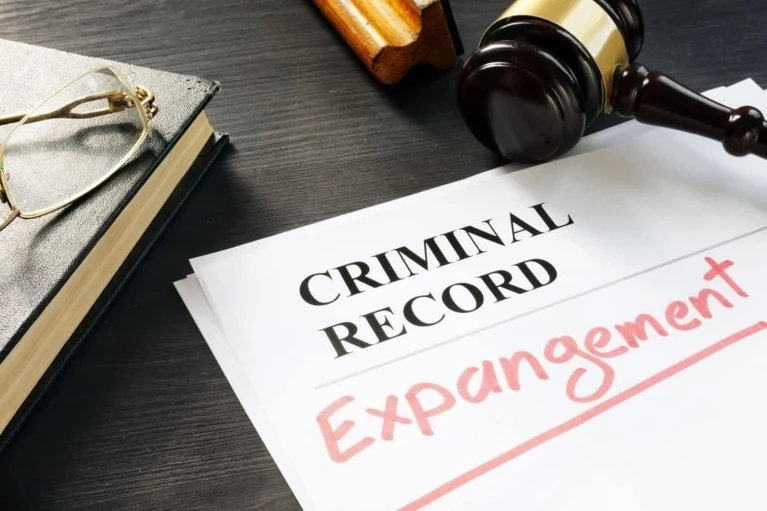🧾 Sealing and Expungement in Florida: A Complete Guide
If you’re looking to clear your criminal record in Fort Lauderdale or anywhere in South Florida, sealing or expungement may be an option. These legal tools can help protect your privacy, open doors to employment and housing, and give you a fresh start.
This guide explains:
- The difference between sealing and expungement
- Who qualifies for each
- What the process looks like
- How these options can change your life
🔒 What’s the Difference Between Sealing and Expungement?
Many people use the terms interchangeably, but under Florida Statute § 943.045, sealing and expungement are distinct legal processes.
| Feature | Sealing | Expungement |
|---|---|---|
| Record Status | Made confidential | Destroyed (except by FDLE) |
| Who Can See It | Limited agencies (e.g., DCF, law enforcement) | No one (unless court-ordered) |
| Can You Deny It? | Yes, with some exceptions | Yes, with similar exceptions |
| Eligibility | Withhold of adjudication | Charges dropped, dismissed, or acquitted |
| Future Expungement | Eligible after 10 years | Already the final step |
✅ Who Qualifies for Sealing or Expungement?
You may be eligible if:
- Your case resulted in a withhold of adjudication (sealing)
- Your charges were dropped, dismissed, or you were found not guilty (expungement)
- You have no prior criminal convictions
- You have no other record expungements or sealings in Florida
- You have no pending charges
A criminal defense attorney can review your case to determine your eligibility.
📁 What’s the Process Like?
The entire process typically takes 5 to 7 months, depending on:
- How quickly you submit documents
- Whether FDLE approves your application
- Local court scheduling
Steps include:
- Obtaining a certificate of eligibility from FDLE
- Filing a petition with the court
- Attending a court hearing (if required)
- Receiving a sealing or expungement order
📁 What’s the Process Like?
The entire process typically takes 5 to 7 months, depending on:
- How quickly you submit documents
- Whether FDLE approves your application
- Local court scheduling
Steps include:
- Obtaining a certificate of eligibility from FDLE
- Filing a petition with the court
- Attending a court hearing (if required)
- Receiving a sealing or expungement order
🌟 Benefits of Sealing or Expunging Your Record
Even one arrest or criminal charge on your record can impact your future. Sealing or expungement can:
🏢 Improve Job Opportunities
Most employers run background checks. Sealing or expunging your record keeps dismissed charges or withholds out of reach.
🏠 Expand Housing Access
Landlords and mortgage lenders may deny applicants with records. Clearing your history improves your housing prospects.
💬 Boost Your Reputation
You won’t have to worry about a mugshot showing up online or acquaintances discovering past mistakes.
✅ Legally Deny the Incident
In most cases, once your record is sealed or expunged, you can lawfully deny the incident ever occurred—protecting you during job, housing, and loan applications.
🧘 Gain Peace of Mind
Clearing your record offers closure and a chance to move forward without stigma.
⚠️ Who Can Still See a Sealed or Expunged Record?
Even after sealing or expungement, certain agencies or scenarios require disclosure:
- Applying for jobs with law enforcement or child services
- Seeking admission to the Florida Bar
- Being charged with a new crime
- Applying for a concealed carry permit
Your attorney can walk you through exactly when disclosure is required.

💬 Frequently Asked Questions
Q: Who is eligible to expunge a criminal record in Florida?
Most employers run background checks. Sealing or expunging your record keeps dismissed charges or withholds out of reach.
Q: Can I seal a record if I received a withhold of adjudication?
Landlords and mortgage lenders may deny applicants with records. Clearing your history improves your housing prospects.
Q: Does a sealed or expunged record appear on a background check?
You won’t have to worry about a mugshot showing up online or acquaintances discovering past mistakes.
Q: Can I legally deny the charge after sealing or expungement?
A: Yes, in most scenarios. Exceptions include applying for government jobs or certain professional licenses.
Q: Do I need a lawyer to seal or expunge my record in Florida?
A: While it’s possible to apply on your own, working with a criminal defense attorney ensures faster processing and fewer mistakes.
📞 Ready to Clear Your Record?
If you’re ready to move forward with sealing or expunging your record, we’re here to help. At Michael White, P.A., we’ve handled hundreds of record-clearing cases across Fort Lauderdale and South Florida.
📲 Call (954) 270-0769 or schedule your free consultation online today.


